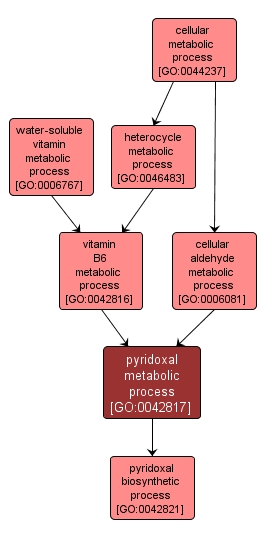| Desc: |
The chemical reactions and pathways involving 3-hydroxy-5-(hydroxymethyl)-2-methyl-4-pyridinecarboxaldehyde, one of the vitamin B6 compounds. Pyridoxal, pyridoxamine and pyridoxine are collectively known as vitamin B6, and are efficiently converted to the biologically active form of vitamin B6, pyridoxal phosphate. |














